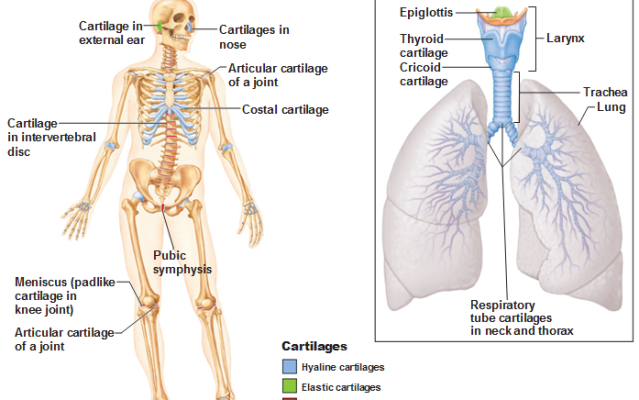Cartilage is a flexible connective tissue found in many areas of the body, including the ears, nose, and joints. It plays a crucial role in the development of the skeletal system, providing support, structure, and flexibility to growing bones. For parents, understanding the timeline of cartilage development in babies can be important for monitoring their child’s growth and development. So, when does a baby develop cartilage? Let’s explore the answer to this question in greater detail.
Table of Contents
Embryonic Development
Cartilage development begins early in embryonic development, when the skeletal system is first forming. During the first few weeks of pregnancy, the embryonic skeleton is made up entirely of cartilage. This cartilage serves as a temporary framework for the developing bones, which will gradually replace it over time. By the end of the embryonic period (around week 8), most of the skeletal system has been formed from cartilage.
 Source: bing.com
Source: bing.comFetal Development
During the fetal period (weeks 9-40), the skeletal system continues to develop and mature. Cartilage is gradually replaced by bone tissue through a process called ossification. This process begins in the center of each bone and works its way outwards. By the time a baby is born, most of their skeletal system has been replaced by bone tissue, but some areas (such as the joints) still contain cartilage.
Postnatal Development
After birth, cartilage continues to play an important role in the growth and development of a baby’s skeletal system. As a baby grows and develops, their bones lengthen and thicken through a process called modeling. This process involves the gradual replacement of cartilage with bone tissue, as well as the addition of new bone tissue at the ends of long bones. The growth plates (also known as epiphyseal plates) located near the ends of long bones are made up of cartilage and play a crucial role in this process.
By the age of 18-21 years, most people have reached their full adult height and their growth plates have closed, meaning that cartilage is no longer actively involved in the growth and development of their skeletal system.
Conclusion
In summary, cartilage development begins early in embryonic development and continues throughout fetal and postnatal development. It plays a crucial role in the growth and development of the skeletal system, providing support, structure, and flexibility to growing bones. By understanding the timeline of cartilage development in babies, parents can better monitor their child’s growth and development and ensure that they are reaching important developmental milestones.
Frequently Asked Questions
Q: When does a baby’s nose cartilage develop?
A: The cartilage in a baby’s nose begins to develop during embryonic development, and continues to develop and mature throughout fetal and postnatal development.
Q: When do the ear cartilages develop in babies?
A: The ear cartilages begin to develop during embryonic development, and continue to develop and mature throughout fetal and postnatal development.
Q: Can cartilage damage occur in babies?
A: While it is rare, cartilage damage can occur in babies. This may be due to genetic abnormalities, trauma, or infections.
Q: Can cartilage repair itself in babies?
A: Cartilage has limited ability to repair itself, especially in babies. In the event of cartilage damage, medical intervention may be necessary to promote healing and prevent further damage.
Q: How can parents support cartilage development in babies?
A: Parents can support cartilage development in babies by providing a healthy, well-balanced diet that includes plenty of nutrients necessary for bone and cartilage health, such as calcium, vitamin D, and vitamin C. Regular physical activity and exercise can also promote healthy bone and cartilage development.
